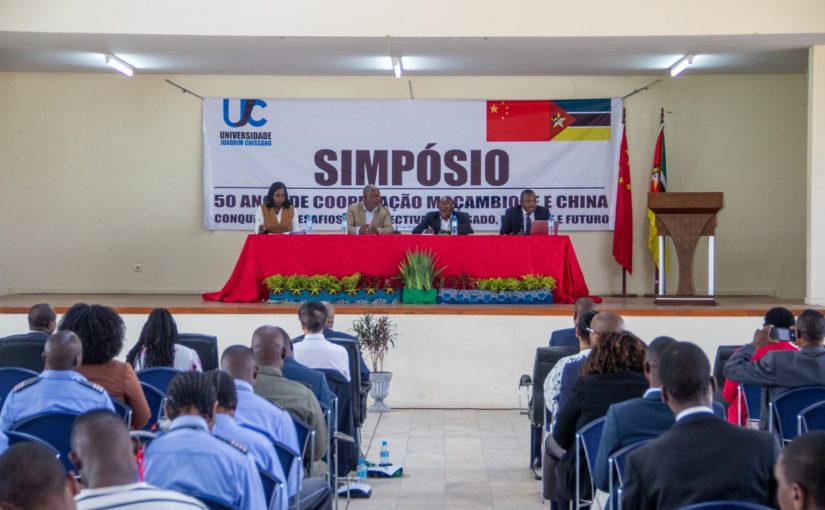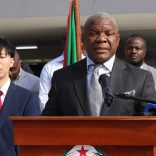Mozambique caps 2025 treasury-bill issues at nearly €6.82 billion
Scholars urge revamp of Mozambique–China cooperation to boost investment, technology and trade

Photo: AIM
Mozambican academics have suggested improvements to the cooperation strategy between the People’s Republic of China and Africa, including Mozambique, emphasizing the importance of seizing investment, technology and trade opportunities, but also of redefining priorities to ensure balanced gains.
This was one of the topics of discussion held this Wednesday (03-09) at the symposium marking 50 years of diplomatic relations between Mozambique and China in Maputo. The symposium brought together academics in international relations, economics and development from the Joaquim Chissano University (UJC), plus representatives from both governments, and students.
Vice-rector of UJC Paulo Wache observed that China had ceased to be merely a regional power and had established itself as a global player, with the capacity to influence the international system.
According to Wache, Beijing articulates its positioning through initiatives that combine development, security and dialogue between civilizations.
“China demonstrates its willingness and ability to lead the world with ideas focused on the Global South. Proposals are not enough; resources are needed to support them, and China has the means to implement them,” he said, highlighting Chinese global development, security and cultural initiatives launched between 2021 and 2023.
For his part, academic Délio Chirindza declared the Forum on China-Africa Cooperation (FOCAC) to be one of the pillars of the Sino-African relationship, explaining that the platform, created in 2000, reorganized interaction between the two sides and created mechanisms for dialogue and investment.
“Africa needs the Chinese market, loans, and manufactured goods. China, in turn, needs raw materials, political support in multilateral bodies, and markets for its products,” Chirindza said.
The researcher warned that the relationship is still asymmetrical, as “China has a clear policy toward Africa, but Africa still lacks a unified policy toward China”.
Academic Nelson Cangolo addressed the implications of the Belt and Road Initiative (BRI) for the international system, highlighting its geo-economic and strategic nature.
“China presents an innovative concept: It uses the economy as an instrument of power projection, without resorting to war, creating value chains outside Western control and alternative routes that guarantee security in global trade,” he noted.
He emphasized that Mozambique was part of the maritime aspect of the initiative, with Chinese investments in the ports of Beira and Chongoene considered strategic.
For Nelson Cangolo, the country must learn from China’s experience with “strategic autonomy” and clearly define its internal priorities to better seize opportunities. “We have a partner with opportunities, but also with challenges. Consistent internal work is needed to systematize and maximize the benefits of this cooperation,” he concluded.
The academics also highlighted the need to ensure public debt sustainability, better negotiate local content in large projects, strengthen technological capacity and ensure that cooperation contributes to inclusive and balanced development.












Leave a Reply
Be the First to Comment!
You must be logged in to post a comment.
You must be logged in to post a comment.